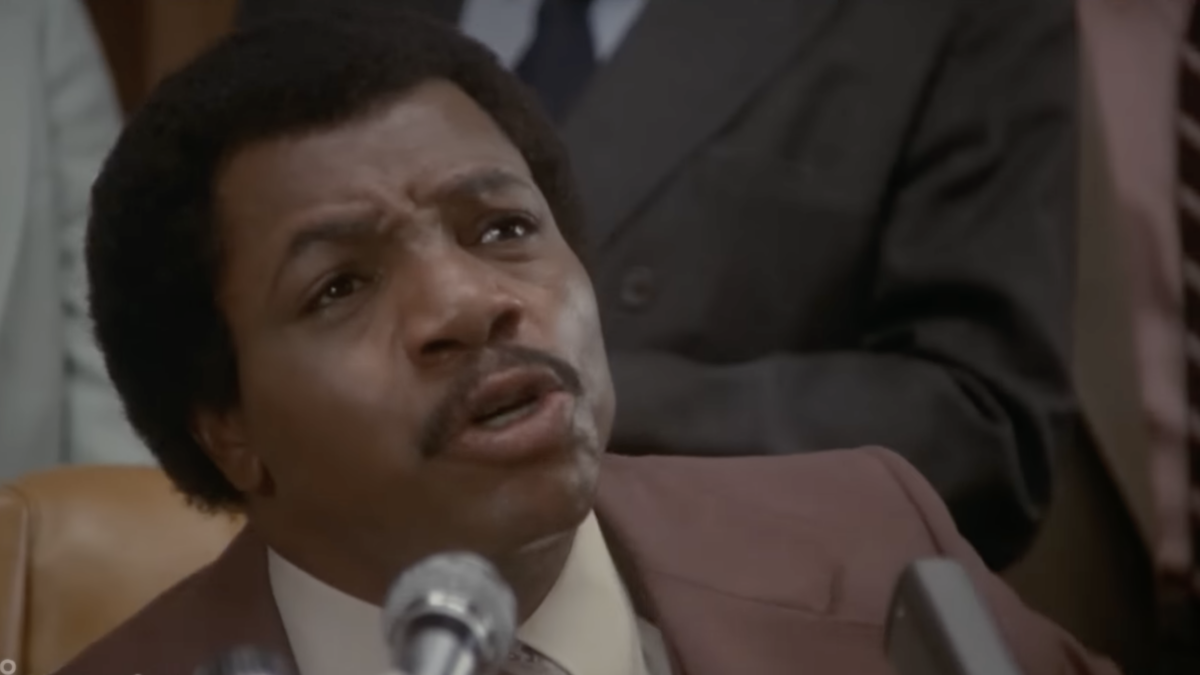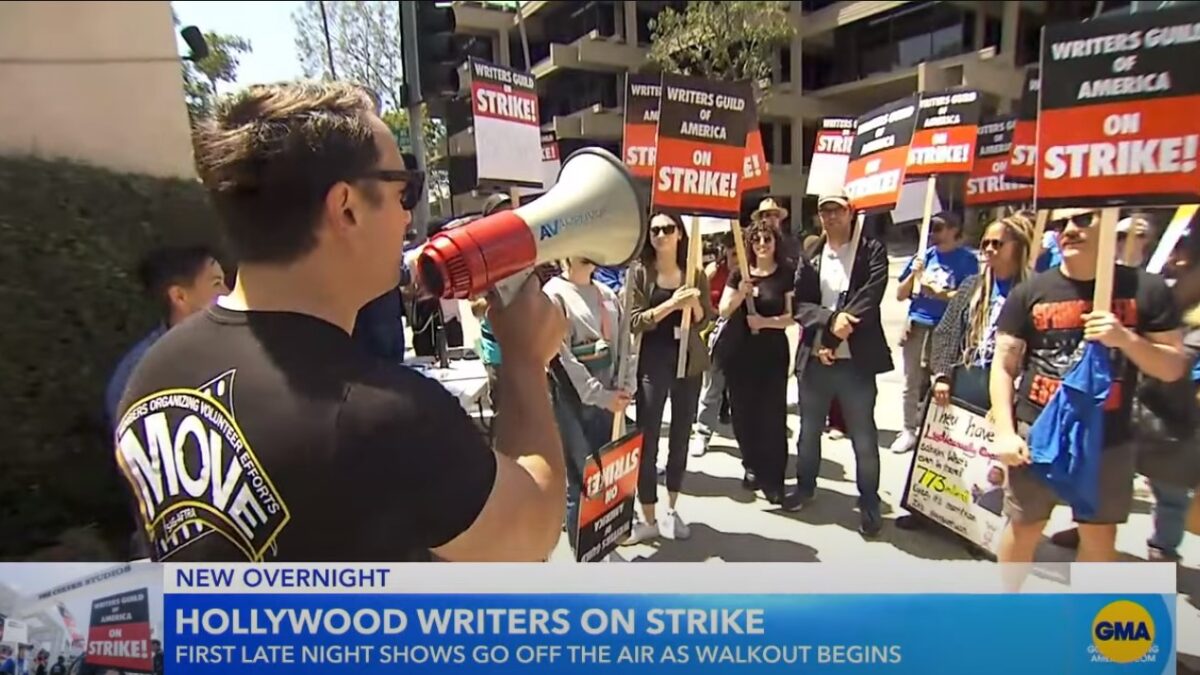
The Academy’s fear of offending anyone left them with a host-less Oscars show, and ratings for Monday’s awards were estimated at the second-lowest of all time. Exact numbers aren’t out yet for this year’s show, but just 26.5 million viewers tuned in to watch “The Shape of Water” win Best Picture last year, as opposed to the 43.5 million who tuned in to watch “The Lord of the Rings: Return of the King” collect 11 Academy Awards back in 2004.
The drop in viewers is staggering, but it’s not so unbelievable when you look at the types of films that have won Best Picture in the 14 years since— mostly inaccessible, largely unwatched “art” films like “Birdman,” “Moonlight,” “Spotlight,” and the appropriately named “The Artist.” In contrast, during the 14 years prior, Best Picture went to films like “Forrest Gump,” “Gladiator,” “Unforgiven” and “Titanic.” The latter are quotable, re-watchable classics widely loved by Americans of all stripes; the former have either been largely forgotten or were never seen by most Americans in the first place.
It wasn’t always this way. The Academy’s poor decision (quickly rescinded) to create an award solely for “popular” films missed the point terribly. Indeed, the proposed solution to Oscar’s troubles was a cure worse than the disease.
The failed ploy to create an Oscar category for “Outstanding Achievement in Popular Film” alienated both ends of the spectrum, insulting both “arthouse” and mass-appeal filmmakers. Producers and directors of more mainstream, crowd-pleasing fare like “The Dark Knight,” “Black Panther,” and “Thor: Ragnarok” would feel sidelined if relegated to the Academy’s failed consolation prize category. In the other corner, less commercial Hollywood producers and directors would take it to mean their films are not “popular” if they were not nominated to the new category (although in most cases that would be correct).
From just before the outbreak of World War II right up until the start of the Iraq War, the idea of an Oscar category for “Outstanding Achievement in Popular Film” would have been unnecessary. From 1939 to 2004—with only a few outliers—the films that won Best Picture were popular. Not just popular, but critically acclaimed, box-office draws, generally loved by both coasts and the heartland in-between.
It wasn’t long ago that Oscar spoke for most Americans. The films the Academy selected for honor used to celebrate the values, principles, and beliefs Americans held dear. They upheld virtue, the importance of family, and traditional, heroic masculinity.
It wasn’t long ago that the Oscars meant something. Just a few years back, the symbol of the golden statuette embossed on the cover of a DVD bestowed the film inside with an automatic sense of reverence and respect. Then in 2005, with a move that exhibited both Hollywood’s growing self-aggrandizement and isolation from mainstream America, things began to change.
The shift in Academy Awards nominees that started in 2005 coincided with the reelection of President George W. Bush the November before. That event was not the sole reason for the break from awarding films with wide appeal, but it might have been the straw that broke Oscar’s back.
Hollywood—and the majority of the leftists that occupy its commanding heights—became wildly disenchanted with the political reality of the mid-2000s. To them, Bush was an idiot whose reelection reflected the backwards foolishness of the common American. In this light, filmmakers set out to educate the American population on the so-called evils of the military, the irredeemable “sins” of the United States, and how rotten the nation is at its core.
Whether this change in tone was deliberate or unconscious, America was soon beset with a cavalcade of nominations for depressing films with countercultural messages. Academy darlings like “Crash” (America was not just historically racist, but is presently and systemically racist), “There Will Be Blood” (Americans are greedy, capitalism corrupts men into psychopaths) and “The Shape of Water” (sex is a social construct, most white men are homophobic and untrustworthy, and the military is evil) constantly berate Americans both for their perceived shortcomings and the implied permanent fallen nature of the country itself.
The election of Barack Obama didn’t stop the Academy’s trajectory of ignoring well-made popular
films in favor of virtue-signaling diatribes. With Hollywood’s growing hysteria over the election of President Trump—coupled with the rise of Trump Derangement Syndrome and the radicalization of the left—the Oscars are likely to continue their break from reality. This year’s list of Best Picture nominees features multiple films that paint America as racist and Republicans as either stupid or Darth Vader reborn (see: “Vice”).
If the Academy is to reverse its ratings collapse and have any hope of relevance, the solution is not to double down on films that exacerbate identity politics. The American people are tired of being scolded by “woke” Hollywood millionaires. They are tired of being shamed for loving their country. The solution to Oscar’s woes is not to condescendingly ghettoize films that appeal to a wide audience out of the conversation for Best Picture by putting them into their own MTV-style category, or to insult filmmakers in tech categories by relegating their awards to off-screen presentations (another rescinded proposition).
The answer is for Hollywood to produce popular films that honor the American spirit, our finest aspirations, and our most inspiring heroes, then, on merit, place them among the best of the year when they truly deserve it. We always need films that celebrate courage and true greatness, and for these films to find their spot next to critically lauded and popular winners like “Ben-Hur,” “The Sound of Music,” “Chariots of Fire,” “An American In Paris,” and “Rocky.”
It’s time for the Oscars to once again recognize films that most of the American public enjoys, like “Braveheart,” “A Beautiful Mind,” and “The Lord of the Rings.” It’s a time to celebrate stories that challenge us to be the best we can be and give us heroes to emulate. It’s time for the Academy to start acting like the Academy again.









